Acne
How to submit an article:
- Registered users can submit any published journal article that has a unique DOI (Digital Object Identifier) name or link to Research Hub.
- For example, you can paste the full DOI link:
https://doi.org/10.1109/5.771073or just the DOI name:10.1109/5.771073into the field above and click submit. - The person who is first to submit a valid article to Research Hub will forever be credited for it, and every article submission earns you +6 Research Points.
Also known as: Acne Vulgaris
Related Topics
Published research studies are articles that present the findings of original research that has undergone a peer-review process and has been made publicly available in scholarly journals, books or other media.

The Effectiveness of Manual Acupuncture Therapy for Acne Vulgaris: A Case Report
2022 Oct 31 Journal of Agromedicine and Medical Sciences Fredy DM, Nareswari I
The acupuncture mechanism works directly on acne lesions by improving microcirculation, reducing proinflammatory reactions, and increasing anti-inflammatory, as well as regulating the HPA axis which can reduce stress and improve hormones. Manual acupuncture can be considered a non-pharmacological therapeutic modality to treat AV with minimal side effects.
Case Report Acne
Network Pharmacology-Based Investigation on the Mechanism of the JinGuanLan Formula in Treating Acne Vulgaris
2022 Jul 13 Evidence-Based Complementary and Alternative Medicine Gholais NS, Shi C, Zhang J, Liao B, Albarmaqi RA, Tang X, et al.
JinGuanLan (JGL) formula might reverse the pathological changes associated with acne vulgaris through its antiinflammatory effect and regulate the excessive lipogenesis in sebaceous glands via different signalling pathways.
Network Pharmacology Jin Guan Lan Acne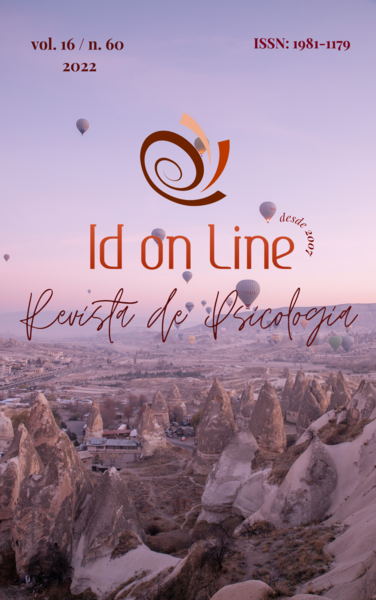
Acupuntura no Tratamento da Acne / Acupuncture in the Treatment of Acne
2022 May 30 ID on line. Revista de psicologia Costa FB, Tavares FM
Acupuncture has no evidence for the treatment of acne.
Acne
Efficacy of acupuncture in improving symptoms and quality of life of patients with acne vulgaris: a randomized sham acupuncture-controlled trial
2022 Apr 18 Acupuncture in Medicine Jiao R, Zhai X, Zhang X, Xiong Z, Liu Z
Acupuncture may not effectively relieve the symptoms of patients with moderate or severe acne vulgaris (AV), or improve quality of life (QoL).
Randomised Controlled Trial Acne Acupuncture
Evaluation of Therapeutic Effect and Prognosis of Danzhi Xiaoyao Powder Combined with Photodynamic Therapy in the Treatment of Rose Acne
2022 Mar 11 Frontiers in Pharmacology Xinjian Yu, Ni Zhang, Jing Jin, Xuwen Yin, Jing Luo
Danzhi Xiaoyao Powder combined with photodynamic therapy (PDT) to treat rose acne is effective, can quickly control inflammatory papules and inflammatory erythema, effectively improve the clinical symptoms of patients, and reduce adverse reactions.
Jia Wei Xiao Yao SanResearch insights are moderated by the Research Hub team and offer an at-a-glance overview of interesting research findings.
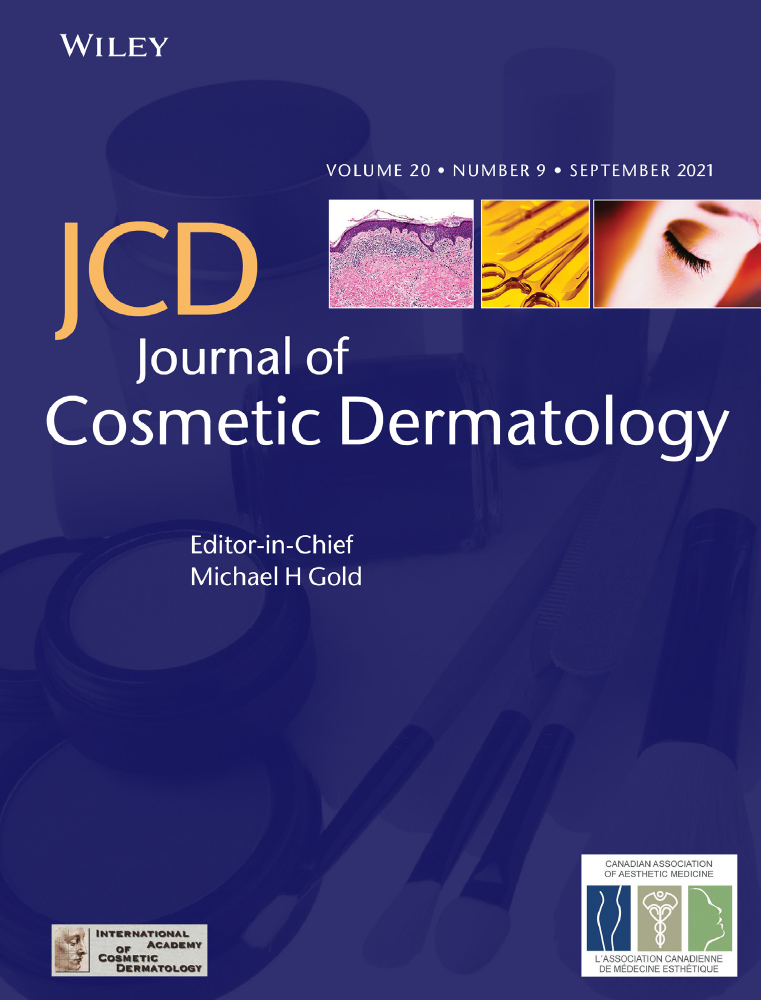
2021 Journal of Cosmetic Dermatology
Acne, primarily influenced by fluctuating hormone levels, may be effectively treated using acupuncture, an ancient technique that tackles the deep-rooted mechanisms crucial to acne development.
Review Article
Acupuncture: A therapeutic approach against acne
Chun‐Yan C, Guang‐yao X, Yan‐yan S, Ming‐Shu X, Peng L

2018 Evidence-Based Complementary and Alternative Medicine
Acupuncture has similar efficacy compared to pharmacotherapies for acne vulgaris, however acupuncture interventions reported less adverse effects and may be a treatment option.
Systematic Review Skin Conditions
Acupuncture for Acne Vulgaris: A Systematic Review and Meta-Analysis
Mansu SSY, Liang H, Parker S, Coyle ME, Wang K, Zhang AL, et al.
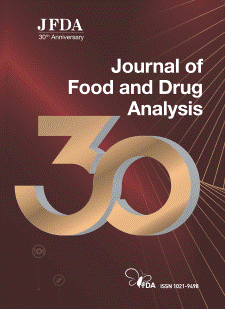
2016 Journal of Food and Drug Analysis
Strictinin, the major phenolic compound in Pu'er teas, shows potential as a natural antibiotic and laxative but has greater inhibitory concentrations than some commercial antibiotics.
Experimental Study Antibacterial Constipation Strictinin
Antibacterial and laxative activities of strictinin isolated from Pu'er tea ( Camellia sinensis )
Hsieh SK, Xu JR, Lin NH, Li YC, Chen GH, Kuo PC, et al.
Review Articles
Review articles summarise and critically evaluate the current state of research on a specific topic or field by synthesising multiple primary research studies.

Acupuncture: A therapeutic approach against acne
2021 Oct 02 Journal of Cosmetic Dermatology Chun‐Yan C, Guang‐yao X, Yan‐yan S, Ming‐Shu X, Peng L
Review ArticleAcne, primarily influenced by fluctuating hormone levels, may be effectively treated using acupuncture, an ancient technique that tackles the deep-rooted mechanisms crucial to acne development.

The effects of green tea on acne vulgaris: A systematic review and meta‐analysis of randomized clinical trials
2020 Aug 19 Phytotherapy Research Kim S, Park TH, Kim WI, Park S, Kim JH, Cho MK
Green tea extract (GTE) significantly reduced the number of inflammatory lesions in acne. Subgroup analysis revealed that topical GTE application was more effective in reducing both inflammatory and non-inflammatory lesions compared to oral intake. The study suggests that topical GTE application is beneficial for acne treatment without significant adverse events, while oral GTE intake has limited effects. However, the authors recommend further high-quality clinical trials for confirmation.
Systematic Review Acne
Efficacy of photodynamic therapy for the treatment of inflammatory acne vulgaris: A systematic review and meta‐analysis
2019 Oct 25 Journal of Cosmetic Dermatology Tang X, Li C, Ge S, Chen Z, Lu L
Photodynamic therapy (PDT) is beneficial for improving the clinical efficacy of inflammatory acne vulgaris, which can be widely used to treat inflammatory acne vulgaris in clinic.
Systematic Review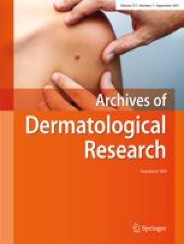
Promising plant-derived secondary metabolites for treatment of acne vulgaris: a mechanistic review
2019 Aug 26 Archives of Dermatological Research Soleymani S, Farzaei MH, Zargaran A, Niknam S, Rahimi R
Various molecular mechanisms were involved in effects of phytochemicals including antioxidant, anti-inflammatory, immunomodulatory, antibacterial, antiandrogenic, reducing sebum production, and lipogenesis inhibitory activities. Therefore, phytochemicals seem to be a precious source for identifying new medicines for treatment of acne vulgaris
Review Article Acne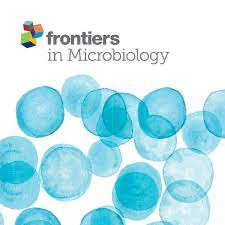
The Gut Microbiome as a Major Regulator of the Gut-Skin Axis
2018 Jul 10 Frontiers in Microbiology Salem Iman, Ramser Amy, Isham Nancy, Ghannoum Mahmoud A.
Basic science research and clinical studies have demonstrated the gut microbiome’s contribution to host homeostasis, allostasis, and the pathogenesis of disease. Through complex immune mechanisms, the influence of the gut microbiome extends to involve distant organ systems including the skin. With intentional modulation of the microbiome, probiotics, prebiotics, and synbiotics have proven beneficial in the prevention and/or treatment of inflammatory skin diseases including acne vulgaris, AD, and psoriasis.
Review Article MicrobiomeClinical Trials
Clinical trials are research studies that involve people and are conducted to evaluate the safety and efficacy of new treatments or interventions, such as drugs, medical devices, or behavioural therapies.

Efficacy of acupuncture in improving symptoms and quality of life of patients with acne vulgaris: a randomized sham acupuncture-controlled trial
2022 Apr 18 Acupuncture in Medicine Jiao R, Zhai X, Zhang X, Xiong Z, Liu Z
Acupuncture may not effectively relieve the symptoms of patients with moderate or severe acne vulgaris (AV), or improve quality of life (QoL).
Randomised Controlled Trial Acne Acupuncture
Efficacy of ah shi Point Acupuncture on Acne Vulgaris
2010 Sep Acupuncture in Medicine Son BK, Yun Y, Choi IH
Acupuncture treatment of moderate acne vulgaris was associated with reduction of inflammatory lesions and improvement of the quality of life.
Randomised Controlled Trial Acupuncture Acne Ah Shi PointsStudy Protocols
Published study protocols are detailed plans that outline the objectives, methodology, statistical analyses, and organisation of a research study that have been made publicly available for others to review and use as a reference.

Clinical study on acupuncture treatment of gastrointestinal damp-heat acne
2021 Nov 05 Medicine Duan PP, Yan CQ, Feng HS, Chen Y, Sun N, Yao YQ, et al.
This study is helpful to evaluate the feasibility, preliminary efficacy, and safety of Spleen and Stomach Guiyuan Acupuncture Method (SSGA) in the treatment of gastrointestinal damp-heat acne.
Study Protocol
Clinical study on acupuncture treatment of gastrointestinal damp-heat acne
2021 Nov 5 Medicine Duan, Ping-Ping; Yan, Chao-Qun; Feng, Hui-Shang; Chen, Yuan; Sun, Ning; Yao, et al.
This study is helpful to evaluate the feasibility, preliminary efficacy, and safety of SSGA in the treatment of gastrointestinal damp-heat acne. The results will be used in sample size calculations for subsequent large-scale studies.
Study Protocol Digestive Health
Efficacy of acupuncture in improving the symptoms and the quality of life of patients with moderate or severe acne vulgaris: study protocol for a randomized controlled trial
2020 Jun 23 BMC Complementary Medicine and Therapies Jiao R, Huang M, Zhang W, Liu Z
We expect to evaluate the effectiveness of acupuncture in ameliorating the symptoms and improving the quality of life (QoL) of patients with moderate or severe acne vulgaris (AV) compared with sham acupuncture with more robust evidence.
Study Protocol Acne
Observation for clinical effect of acupuncture combined with conventional therapy in the treatment of acne vulgaris
2020 May Medicine Kou L, Yu N, Ren J, Yang B, Tao Y
This trial may provide evidence regarding the clinical effectiveness, safety, and cost-effectiveness of acupuncture for patients with acne vulgaris.
Study Protocol Acne Vulgaris
Efficacy of acupuncture in improving the symptoms and the quality of life of patients with moderate or severe acne vulgaris: a protocol for a randomized controlled trial
2020 Mar 23 Trials Ruimin Jiao, Man Huang, Weina Zhang, Zhishun Liu
We expect to evaluate the effectiveness of acupuncture in ameliorating the symptoms and improving the quality of life (QoL) of patients with moderate or severe acne vulgaris (AV) compared with sham acupuncture with more robust evidence.
Study Protocol AcupuncturePresentation Slides

Review Article
Acne, primarily influenced by fluctuating hormone levels, may be effectively treated using acupuncture, an ancient technique that tackles the deep-rooted mechanisms crucial to acne development.
Chun‐Yan C, Guang‐yao X, Yan‐yan S, Ming‐Shu X, Peng L

Systematic Review
Acupuncture has similar efficacy compared to pharmacotherapies for acne vulgaris, however acupuncture interventions reported less adverse effects and may be a treatment option.
Mansu SSY, Liang H, Parker S, Coyle ME, Wang K, Zhang AL, Guo X, Lu C, Xue CCL

Experimental Study
Strictinin, the major phenolic compound in Pu'er teas, shows potential as a natural antibiotic and laxative but has greater inhibitory concentrations than some commercial antibiotics.
Hsieh SK, Xu JR, Lin NH, Li YC, Chen GH, Kuo PC, Chen WY, Tzen JTC
Executive Summary
Write an executive summary in the form of a blog article on the topic of "Research into Chinese medicine treatment for Acne" summarising the research below and using language that can be easily understood by patients and avoiding medical jargon using a professional and caring tone of voice.
Write an executive summary in the form of a blog article on the topic of "Researched Chinese medicine treatments for Acne" summarising the research below in an objective and easy to understand way, and using language that can be easily understood by patients. Group the article into Chinese medicine treatments first, followed by nutrition and other treatments. Avoid using medical jargon and use a professional and caring tone of voice.
Write me a concise but easy to understand executive summary on the topic of "Chinese medicine treatments for Acne" based on the following research that I will give you. Your summary should be 2 paragraphs long in Australian English spelling and include references to the studies.
A Review Article published in 2021 in the journal Journal of Cosmetic Dermatology found that Acne, primarily influenced by fluctuating hormone levels, may be effectively treated using acupuncture, an ancient technique that tackles the deep-rooted mechanisms crucial to acne development. The methodology of this research paper involved analyzing and understanding acne, identifying its causes and pathogenesis. It was noted that acne is particularly prevalent among juveniles and can be problematic if not treated properly, often leaving persistent scars. It was found that there are four different mechanisms involved in the formation of acne lesions, which are associated with the pathogenic influence of damp heat and heat on specific meridians according to Traditional Chinese Medicine. Additionally, the study reviewed various treatment methods that ranged from oral medications to creams, gels and also the use of acupuncture as potential means of acne treatment. The results discussed in the paper indicate that hormone level fluctuations serve as a key factor in the development of acne. The researchers delved into the utilization of acupuncture therapy as a treatment for acne. They explained the methods, devices, and different techniques involved in this ancient Chinese practice, laying emphasis on acupuncture's role in addressing the significant and deeper mechanisms in acne progression. The clinical trials underscored the efficacy of acupuncture in managing acne, positioning it as an influential remedy within the growing field of medicine.
A Systematic Review published in 2018 in the journal Evidence-Based Complementary and Alternative Medicine found that Acupuncture has similar efficacy compared to pharmacotherapies for acne vulgaris, however acupuncture interventions reported less adverse effects and may be a treatment option. There was no statistical difference in the efficacy of acupuncture compared to pharmacotherapies for acne vulgaris; however acupuncture interventions reported less adverse effects. Poor methodological quality of trial design and lack of consistent reporting of outcome measures from some trials were found in this review; therefore results should be interpreted with caution. Future trials should include rigorous methodological design and reporting should follow standard reporting conventions such as CONSORT and STRICTA. Quality of life measures and further understanding of the mechanisms of acupuncture on acne should also be considered for future studies.
A Experimental Study published in 2016 in the journal Journal of Food and Drug Analysis found that Strictinin, the major phenolic compound in Pu'er teas, shows potential as a natural antibiotic and laxative but has greater inhibitory concentrations than some commercial antibiotics. The study isolated strictinin from the young leaves and buds of wild Pu'er tea trees to evaluate its antibacterial and laxative properties. Its minimum inhibitory concentrations against two types of bacteria (Propionibacterium acnes and Staphylococcus epidermidis) were measured and compared to typical antibiotics. The study also tested the effects of combining strictinin with commercial antibiotics. Moreover, rat feeding tests were conducted to observe laxative effects. The results showed that strictinin does have antibacterial properties albeit requiring higher concentrations compared to some conventional antibiotics. Its use in tandem with other antibiotics demonstrated additive and synergistic effects in inhibiting bacterial activity. Additionally, a laxative effect was confirmed in rats, which was likely caused by increased small intestine transit but not diarrhea or increased food intake. This suggests strictinin could be one potential ingredient in Pu'er tea responsible for antiviral, antibacterial, and laxative effects.
Moderation Tools
Topic
Sign In
Users not signed in are limited to viewing the 5 most recent items of content.